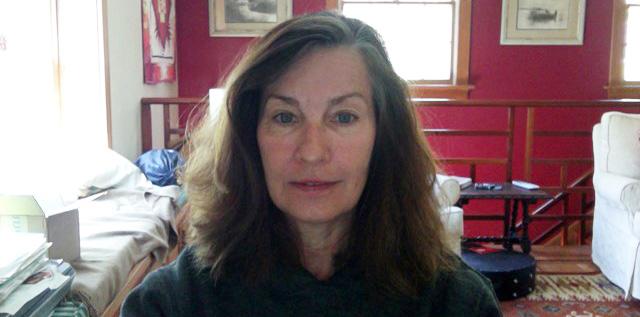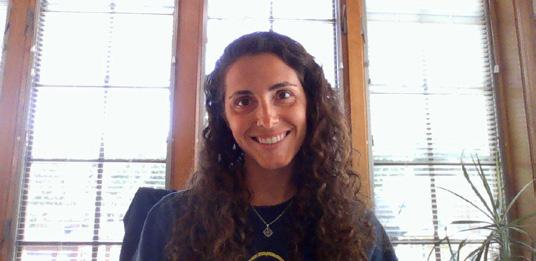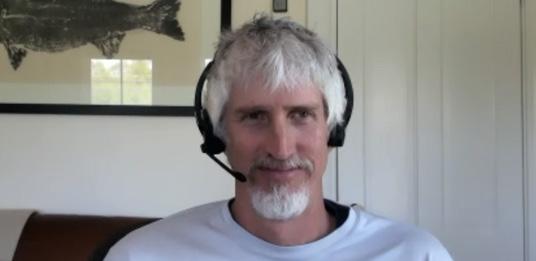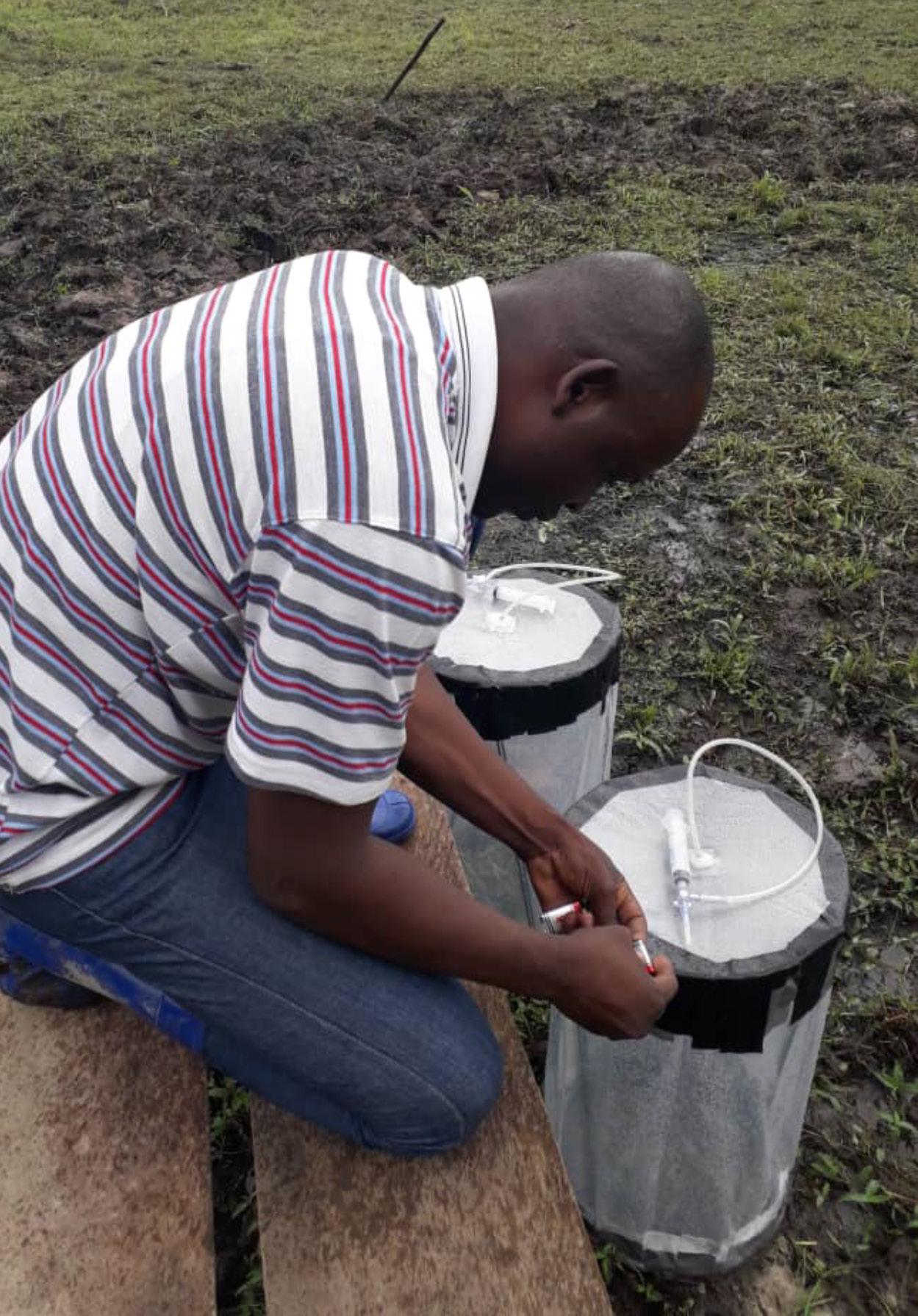
4 minute read
Parallel global crises: Pandemic alters research, highlights need for leaders to listen to science
Miles Grant Director of Publications & Media Relations
The year 2020 will go down as unprecedented in the Center’s 35-year history: Nearly-empty offices, limited laboratory work, and hardly any field research. As the COVID-19 pandemic has spread, Woodwell Climate scientists have been challenged as never before to find creative ways to achieve their research goals—and, as with climate change, world leaders have been challenged to accept science or face the consequences.
Almost all Woodwell staff have been working remotely since the outbreak began in March. After a total shutdown in March, the Gilman Ordway Campus in Falmouth partially reopened in June following guidelines from the state of Massachusetts. Essential staff may enter the office after completing a virtual training. Strict health protocols are in place, common areas remain closed, and only a handful of staff work out of the offices each day.
The reopening effort has been overseen by Laboratory Manager Lindsay Scott, now holding the additional role of COVID Safety Director.




“Keeping our lab running with few staff on hand is a challenge because many of our instruments don’t do well when they’re idle for any period of time,” she said.

Impacts on field research have varied. In the Amazon and in the Democratic Republic of Congo, local partners have been able to keep some research going. While some fieldwork in New England has been conducted in a socially-distant manner, tasks such as equipment hand-off must be reevaluated in light of pandemic guidelines. Meanwhile, with concerns about student and Indigenous community safety in mind, Woodwell revamped this year’s Polaris Project to be primarily online, while offering this year’s students a chance to make the usual trip to Alaska in 2021. The ripple effects of pandemic restrictions have been widespread in the climate science and policy communities, for example moving this year’s American Geophysical Union annual meeting online. The next United Nations climate change conference, known as COP26, has been delayed a year until November 2021.
More broadly, the pandemic’s impact has been hard to watch for Woodwell Climate scientists, who immediately noted parallels in the government response and polarized public opinion. Much as climate scientists have battled indifference and complacency, the advice of health experts on confronting COVID has not been accepted or enforced widely enough to stave off widespread harm.
“We in the United States cannot seem to organize ourselves to take the simple steps needed to control the virus,” wrote Woodwell President Dr. Phil Duffy in an August op-ed. “We need to do a lot better than this if we want to have a chance of stopping climate change.”
Within the tragedy of the pandemic, there have been glimmers of hope for what a more sustainable future on the other side could look like. Lockdown measures have cut the world’s carbon pollution, though only temporarily, and it remains to be seen how many policies and behaviors, like work-from-home, will outlast the pandemic. Stimulus measures to address the economic slowdown could provide an opportunity to jump-start a low-carbon economy.
As for Woodwell’s operations, COVID’s continued spread means remote work will continue to be the norm. Staff have sought ways to stay connected socially, as well, holding virtual morning coffee sessions and distanced group dog walks.
It’s been especially challenging for newer staff. Leslie Kolterman started work as Woodwell’s Chief Development Officer only a few days before quarantine began.
“Woodwell’s thorough interview process helped me get to know the organization quickly, and because we had so much intensive work underway with rebranding, it brought our development team together to work collectively,” said Kolterman. “The urgency of the Center’s mission really carries us along, a combination of a cohesive internal culture and an urgency to secure the resources we need to do the science necessary. I’m especially grateful to our board, led by our chair Joe Mueller and our vice chair Connie Roosevelt, which is one of the best fundraising boards I’ve ever worked with.”
That strong, ongoing support for the Center’s mission will be needed more than ever as the pandemic continues into 2021.
Previous page: Some of Woodwell’s staff participated in taking working-from-home selfies in the spring. Above left: Joseph Zambo sampling greenhouse gas fluxes in rice fields in Mbandaka, DRC.
GIVE
Increase your giving impact through your employer’s matching gift program. Most employers will match any charitable contributions made by their employees, retirees and/or employees’ spouses. Contact Jackie Ducharme at jducharme@woodwellclimate.org to find out what information your employer needs.










